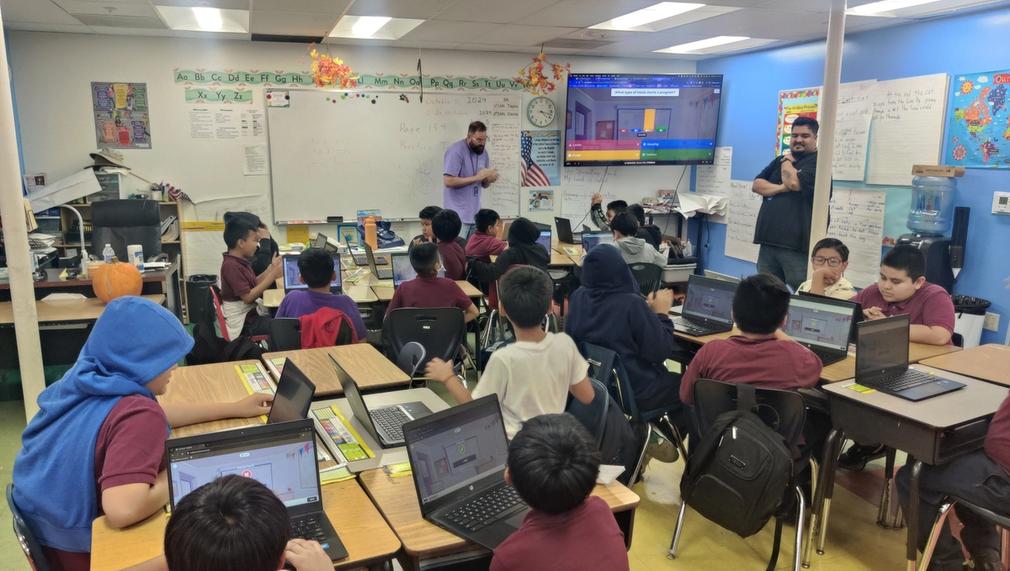NEW Learning Centers
New Economics for Women (NEW) seeks funding to strengthen the capacity of its Learning Centers. A grant from LA 2050 will be a catalyst for our students and families, using educational opportunities in STEAM as a tool to overcome generational poverty and to help our communities live their most prosperous lives.

What is the primary issue area that your application will impact?
K-12 STEAM education
In which areas of Los Angeles will you be directly working?
Central LA San Fernando Valley
In what stage of innovation is this project, program, or initiative?
Expand existing project, program, or initiative (expanding and continuing ongoing, successful work)
What is your understanding of the issue that you are seeking to address?
Children and families in poverty can face insurmountable challenges obtaining a high-quality and supportive education. Within our Learning Center service areas in Canoga Park and Pico-Union, 65% are Latino, only 43% have secured a high school degree, 31% did not complete their high school degree, and total family incomes average a mere $30,000 annually. A full 100% of students attending our Learning Center receive free/reduced lunch, an indication of their poverty levels, and 50% of student families earn less than $15,000 a year. The vast majority of Learning Center students are bilingual and over 50% are English Language learners.
NEW’s Learning Centers use education as a tool to overcome generational poverty and to help children and families thrive. Through our programming, children have the benefit of consistent and personalized academic support. Our professional staff build their self-confidence and give them an opportunity to develop skills in valuable STEM fields.
Describe the project, program, or initiative this grant will support to address the issue.
The Learning Center launched in 1999 as a supportive program for families living in NEW’s affordable housing communities in the Los Angeles neighborhood of Pico-Union. Staff secured funding from the California Department of Education in 2006 and over the next several years worked closely with schools, students, and parents to build a high quality program tailored to address the needs of the communities they serve. Today, the Learning Centers serve over 200 children in the communities of Pico-Union and Canoga Park. Our programming spans an extensive STEM curriculum, social activities, arts programming, and parental involvement classes. We offer these services for students in TK through fifth grade.
NEW’s Learning Centers provide innovative, year-round personalized homework support, a rotating selection of enrichment courses, summer and winter day camps, holiday events, community clean-ups, and a broad array of specialty programs made possible through partnerships with organizations like Unidos US, the California Science Center, Girl Scouts of Greater Los Angeles, and more. We also empower parents to advocate for their children within the school system and help them achieve academic success. All services offered by NEW’s Learning Centers set up our students to embrace their curiosity and love of learning, and give parents the resources to actively and confidently support their children’s educational goals.
Describe how Los Angeles County will be different if your work is successful.
NEW’s Learning Centers use education as a tool to overcome generational poverty and to help children and families live their most prosperous lives. Through our programming, children have the benefit of consistent and personalized academic support. Our professional staff build their self-confidence and give them an opportunity to develop skills in valuable STEM fields. Whether these opportunities lead to college and advanced degrees, or employment in a high-paying industry, both lay the foundation for a strong economic future. The Learning Centers also act as a gateway for families to connect to other NEW programs that provide housing assistance, financial coaching, small business workshops, and much more. These services set up both children and parents for upward economic mobility are essential to disrupting the cycle of generational poverty and helping the whole family to thrive.
Approximately how many people will be impacted by this project, program, or initiative?
Direct Impact: 384
Indirect Impact: 414